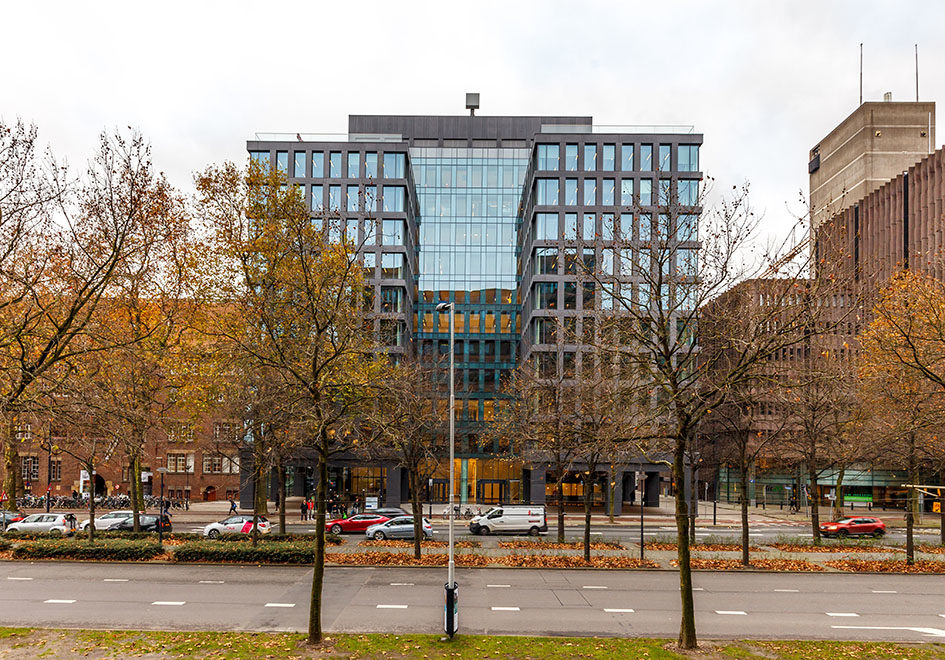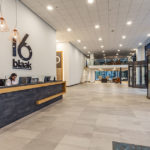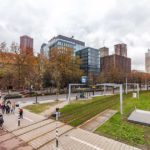Sustainable buildings are important to workers in the present, and will become increasingly more so in the future. People want to work in buildings which generate energy, not just in terms of energy-efficient buildings powered by green technology, but creative energy. These sustainable buildings are inspiring meeting points for workers: they are flexible in how they are used, who uses them, and how people reach them.
Investors and builders must keep this definition of sustainability in mind when modernizing real estate across Europe. It’s no longer enough to achieve an “energy-efficient” label from the local regulator — a building must meet the above criteria to be considered a sustainable, creative space for the workforce for the future.
Employee health drives sustainability
A key driver for this movement toward sustainability is the health of employees. For many employers and human resource departments, workplace health management has become a top priority. Workers are keen to take advantage of employee health initiatives, which are now some of the driving forces for companies, in attracting and retaining talent. Due to this demand, it’s become a priority for employers to focus on creating an environment that will promote the health and well-being of those who actually come work in their buildings, every day. In this sense, sustainability becomes durability. Not only does an office building need to be efficient in the long run, but it must also be aesthetically attractive, in order to retain long-term tenants.
Creating new partnerships with innovative suppliers is also crucial in the effort to achieve true sustainability. For example, we have partnered with a company called Healthy Workers. Healthy Workers aims to help employers create the optimal work environment, where employees can feel less stressed and more engaged in the workplace. The company combines soft data on employee well-being, such as how many times employees use fitness facilities in the building, with real-time hard data, like employee surveys. The results can help building managers make small improvements that drastically improve the day-to-day experiences of tenants using the building.
Flexibility reduces vacancies
Flexibility is another important element in sustainability. When redeveloping a property, we prioritize functionality and mixed-use purposes to avoid the building becoming structurally vacant over time. That’s why making buildings durable requires flexibility in the structural set-up, so that it can be amended for different purposes in the future. To this end, we partnered with Finch, a modular builder that makes high quality affordable wooden units, suitable for different target groups and applications that can adapt to the environment and circumstances. Finding the right partners can help transform a bland complex into a lively environment, with features like an energy-neutral restaurant in the courtyard and creative meeting places inside.
The Netherlands is one particularly appealing venue for sustainability. In Amsterdam, we made significant renovations to an office complex called La Guardia, repositioning the complex from a single-tenant complex to a lively, sustainable, multi-tenant working environment. We’re using the new standard of sustainability to produce efficient and creative solutions with our partners. Our aim is to create the first healthy-working community in the Netherlands, and expand that model across the continent.
The world is changing around us and the property market must change as well. Society increasingly demands buildings that are energetic, green, enjoyable to work in, and not wasteful of energy and materials. The future of real estate depends on builders making a commitment to sustainability and durability.
Regulators and bankers are pressuring building owners to take serious steps toward energy efficiency, and we’ve begun to see that take hold. But real estate developers and investors should look further into the future, and also embrace healthy working environments that are flexible and sustainable for the long-term.
mbriet@cairn-re.com
www.cairn-re.com










